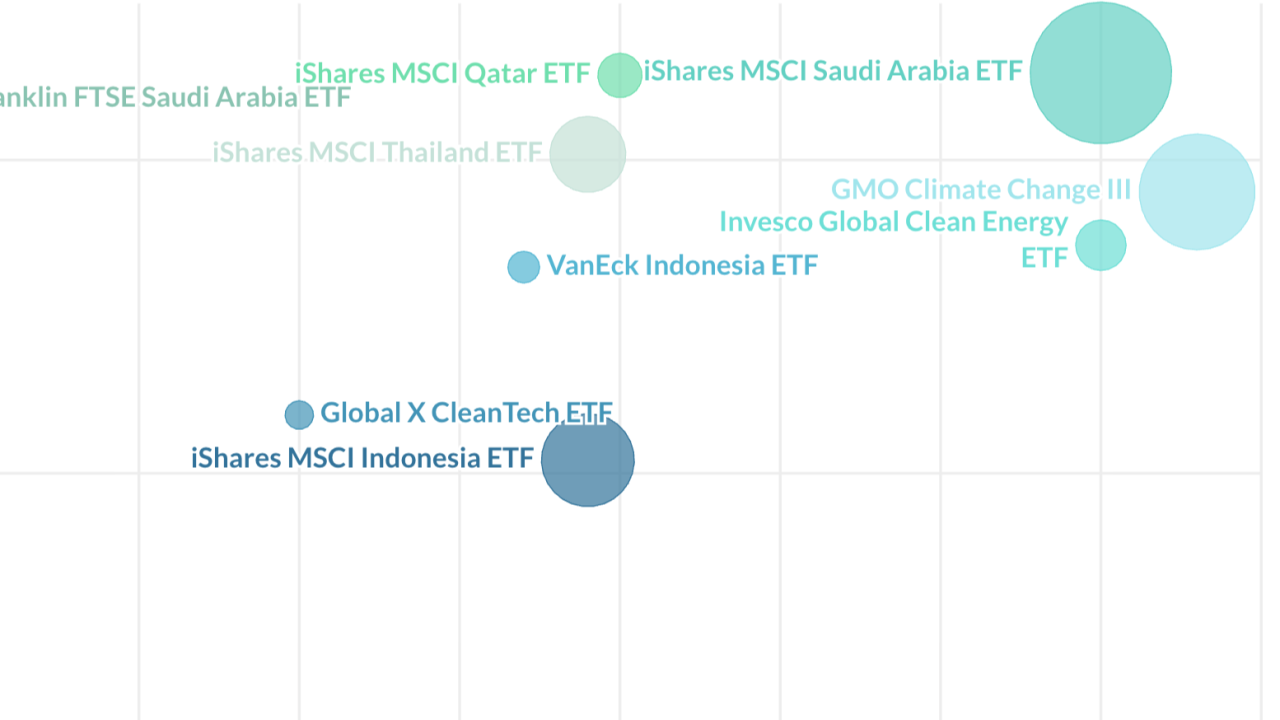Putnam's woes are far from over as federal regulators are swinging for the fences and are poised to ask a judge to punish the firm more severely than any company mired in the scandal so far.
The two sides appear to be farther apart than ever since they initially agreed to a partial settlement in November, with a looming showdown in court fast approaching. They are set to meet April 19, in Boston before an administrative law judge. The SEC is seeking to impose a heavy penalty of fines and disgorgement that, by MME calculations, sets the minimal amount at about $830 million. These calculations are based on pre-hearing briefs by the SEC and Putnam, as well as estimates by Lipper of New York.
This is quite a discrepancy from the $24 million that Putnam took out as a reserve for restitution and costs in the fourth quarter, as well as the stance Putnam has taken since November, when it began touting reforms it has made to try and convince the investing world it has changed its misguided ways.
Some are saying the SEC is going too far this time, while shareholder advocates and critics claim the pre-hearing brief arguments by Putnam indicate the firm is reverting to its old way of thinking.
"Putnam is not going to win this case," said Mercer Bullard, founder of shareholder advocacy group Fund Democracy, assistant law professor at the University of Mississippi, and former SEC attorney. "Even if they win at the administrative law judge level, the staff will appeal, and the Commission will come down very hard on Putnam. Not only are Putnam's arguments weak, I think the strategy is badly misguided. This is going to cost Putnam a lot more than just the penalty they end up paying. They are continuing to show they are one of the bad boys of the industry."
Dollars and Sense
The price tag the SEC is seeking can be broken down into two basic categories: the forfeiture of ill-gotten gains and penalties.
The costs could be astronomical to Putnam if it is forced to return fees the SEC claims it should not have gotten. By keeping the improper trading activity by its employees a secret from shareholders and its board of trustees for nearly four years, Putnam delayed the eventual investor backlash. Meanwhile, the firm was collecting management fees on the money that would have walked out the door once the developments were revealed, the SEC said.
"Similarly, in insider trading cases, courts routinely calculate disgorgement on the basis of the market's reaction to the eventual disclosure of the inside information," the SEC brief states.
Regulators are looking for the return of this fee money, plus interest, under the theory that the firm should not have been allowed to profit from its criminal activity. Additionally, the SEC says Putnam is liable for the disgorgement of profits under the "faithless servant" doctrine.
After wrongful activity was revealed at Putnam, assets flew out the door. The firm suffered $54 billion in net redemption during the fourth quarter, and redemptions have continued since. The SEC said that it recognizes some redemptions are attributable to other non-fraudulent factors, such as poor performance, and it will tailor its argument to account for this fact.
Putnam has bled $31 billion in mutual fund assets since the scandal broke in November, according to Lipper. Calculating the fee ratio for the funds that suffered outflows at Putnam during that time, and then applying that rate to the $31 billion in assets, Lipper said that according to the basic rationale provided by the SEC, Putnam collected $171.4 million in fees it shouldn't have, on an annualized basis. The SEC is claiming the activity took place over a four-year period, bringing the total to more than $685 million in fees over that time frame. This calculation does not include interest and does not account for redemptions due to poor performance.
251 Fines, At Least
Putnam admitted that at least six of its investment professionals engaged in 251 improper trades over a five-year period, the SEC said in its brief, adding there is evidence of "many more additional improper trades."
Federal regulators will ask the judge to consider each of those 251 trades not as one aggregate offense, but as 251 individual violations. The SEC is calling for a "third-tier" penalty, which carries a fine of up to $550,000 for each act committed before Feb.2, 2001 and $600,000 for those after.
Taking a conservative estimate, using the lower $550,000 figure, the SEC is seeking $138 million in fines for the 251 violations, which does not include the unknown additional violations the Commission said it will prove in court.
The SEC declined to clarify the dollar amount it is seeking. Putnam officials also would not provide specifics on the amount, but said the firm is prepared to pay a reasonable penalty that is proportionate to the conduct at issue.
The SEC said it is taking the hard line and seeking the large penalty because of the "substantial harm to investors, the significant risk of further harm to investors and Putnam's substantial pecuniary gain." The regulator said pushing Putnam back to where it would have been if the fraud did not occur is not enough; it needs a significant penalty to serve as a deterrent. Marsh & McLennan, parent company to Putnam, had net income of $1.5 billion in 2003, so a steep fine is not unreasonable, the SEC claims.
All About the Benjamins
"Putnam is trying to make this sound like it is about the amount of money that they made pursuant to their trading, and they know perfectly well that is not what this is about," Bullard said. "The $50 billion that marched out the door knows that this is not what this is about. What it's about is high-level executives at a firm abusing the shareholders trust and then trying to cover it up."
However, Putnam's thesis is that the SEC's argument lacks "proportionally" since harm done by the six Putnam employees amounts to only $500,000 in net profits.
Once the "overly dramatic language" is weeded out, the SEC's argument is all about grabbing a headline-making number, Putnam said. "The division seeks to impose on Putnam a combination of disgorgement and penalty that would potentially be higher than ever before imposed in any case," Putnam said in the brief.
Additionally, Putnam claims that none of the managers had company permission to engage in improper trading and that the firm has agreed to make full restitution, implement reforms and asserts that the violations in its shop are not on par with timing arrangements set up by other fund firms. "Unlike other mutual fund complexes, the misconduct at issue at Putnam did not involve late trading, nor did it involve any agreements with hedge funds or others to permit market timing," a firm spokeswoman said.
"Putnam has very persuasive arguments as to why the penalty the SEC is seeking is duplicative and excessive," said Lex Bono, a partner and chair of the corporate litigation practice group of Blank Rome LLP. "Most importantly, one of the measures Putnam agreed to, a very extraordinary measure, was the appointment of an independent assessment consultant, whose job it is to determine the scope of the injury. Putnam has agreed to pay whatever this independent assessment consultant decides is correct."
Bono also said that there is a policy regarding penalties, where structural reform can be used as an alternative to a dollar payment. As for the dollar amounts the SEC is seeking, Bono said the agency is "really pushing the envelope." On top of that, the regulations were a little bit murky, and there's "somewhat of a regulation-by-hindsight occurring here," Bono said.
The most important question for the judge in this case is, what is in the best interests of the investing public? "My opinion and experience is that there is some substantial structural remediation that has already been addressed," he said.
However, the SEC is not as impressed, arguing that while the measures are important, they are simply designed to make sure the firm will do what it should have been doing all along, and that Putnam still needs to be punished.
Bullard said there is nothing in the steps Putnam has taken that would warrant reducing the penalty. The penalty is for the conduct that occurred prior to the settlement, he said, adding, "You don't get credit for things done since the settlement."
"They didn't find this and turn themselves in," he said. "This was exposed after they already discovered it and for years covered it up. This is the worst kind of conduct in that the institution itself had knowledge at the highest levels, and not only did nothing about it, but some of the highest-level people are still on board. If the board really believes in getting rid of the perpetrators, why is the general counsel still on their staff?"
While Putnam is looking at a potential settlement north of $800 million with the SEC, state regulators have not thrown their dollar figures into the mix yet.
Copyright 2004 Thomson Media Inc. All Rights Reserved.
http://www.thomsonmedia.com http://www.mmexecutive.com





